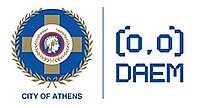SSWC - Paradigm shifting of our traditional working environment for a Smart and Sustainable Work Culture (SSWC) through connectivity and sharing








| Partner | Konkuk University, Korea Korea Advanced Institute of Science and Technology (KAIST), Korea National Technical University of AThens (NTUA), Greece |
| Researcher | Prof. Dr. Marco Pruckner Jonas Schiller M.Sc. |
| Funded period | January 2025 - December 2026 |
| Funder | Driving Urban Transformation Partnership - Projektträger Jülich (Local Funding Partner) |
Project Description
Goal: Our primary goal is to achieve a sustainable, equitable, and healthy 15-minute city by proposing
a Smart and Sustainable Work Culture (SSWC).
Objectives: We will devise and evaluate strategies to 1) reduce car dependency by hybridising work
styles, sharing office spaces near housing and schools, arranging demand-response shuttles and
promoting active transportation modes, and 2) reduce energy consumption and greenhouse gas
emissions by controlling the hybrid work schedule, shuttle routing, and shared building energy.
Methodology: We will first identify possible design strategies (e.g., hybrid-work schedule, shared-office
distribution, shuttle routes, etc.) that could create SSWC through literature review and interviews (WP1).
Using such design strategies, we will develop SSWC at target cities, such as Athens and Glyfada in
Greece, Haßfurt in Germany, and Sejong in Korea (WP2). Then, we will simulate the proposed SSWCs
focusing on car dependency and energy consumption (WP3). The effectiveness of the design strategies
will be evaluated using the simulation results, sensitivity analysis, and stakeholder surveys (WP4). All
results will be disseminated in multiple channels (WP5).
Expected results: The proposed and evaluated SSWCs are expected to reduce car dependency and
energy consumption, which in turn will contribute to creating a sustainable, equitable and healthy 15-
minute city.
Our contribution to the project: Optimal Location and Energy Simulation
Our contribution to the project is twofold. Firstly, we will develop an algorithm designed to identify the optimal locations for shared workplaces, including cafés, co-working spaces, and libraries. This algorithm will leverage current mobility patterns within the city to ensure these locations are both accessible and convenient for users. In addition to this, we will conduct a comprehensive investigation into how evolving working patterns and the shift in workplace locations influence overall energy consumption and carbon emissions. This analysis will be grounded in mobility and building energy simulations, providing valuable insights into the environmental implications of these changes. Through this dual approach, we aim to enhance urban planning and promote sustainable development.


